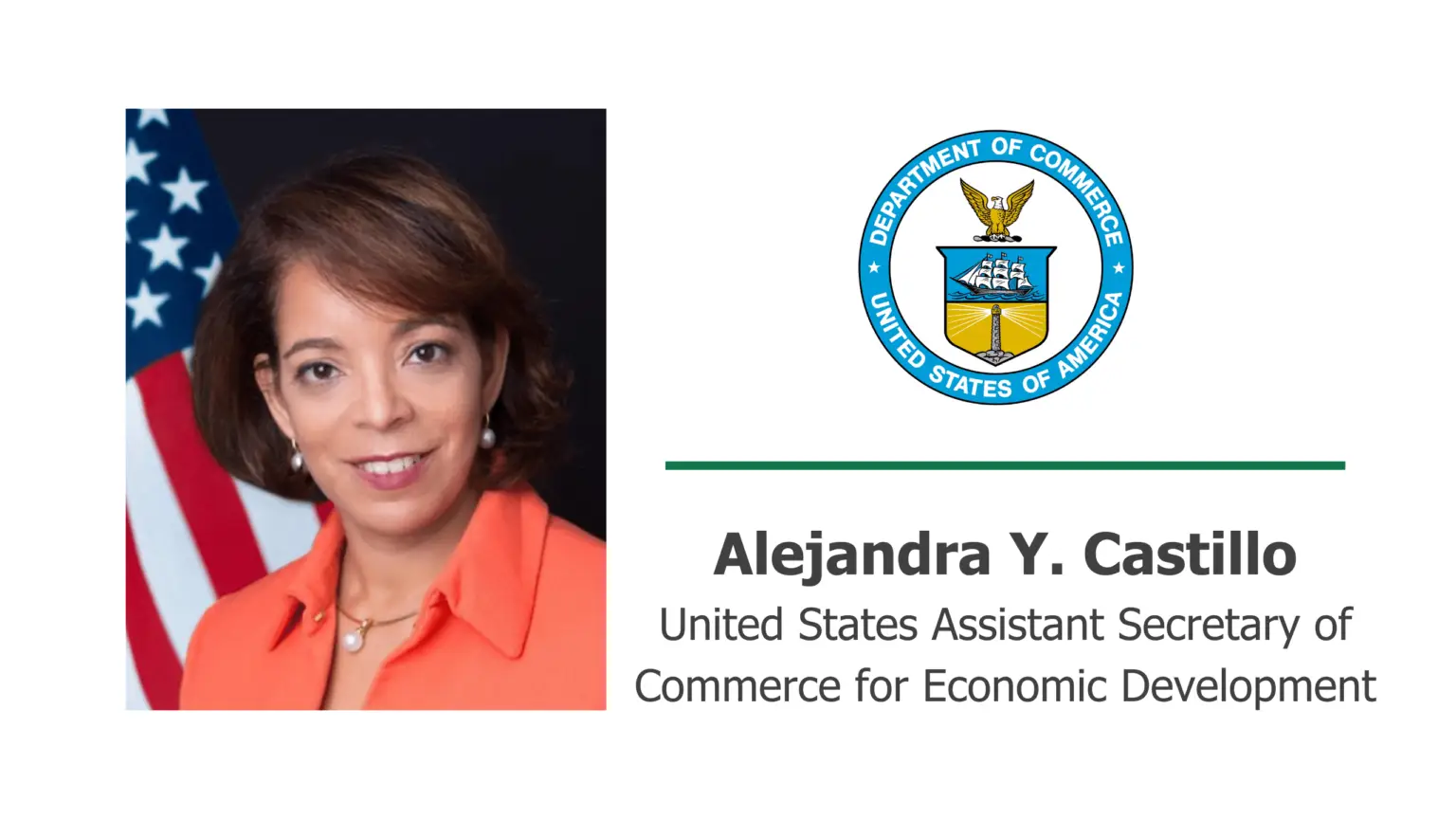Recently, Golden LEAF President, Chief Executive Officer Scott T. Hamilton sat down with United States Assistant Secretary of Commerce for Economic Development Alejandra Castillo via Zoom and filmed an episode of Critical Conversations. In this series, Scott talks with professionals about economic development issues affecting the state.
Assistant Secretary Castillo was sworn in as U.S. Assistant Secretary of Commerce for Economic Development on August 13, 2021. Assistant Secretary Castillo has served in leadership positions under three presidential administrations – Presidents Biden, Obama, and Clinton. Her professional career spans two decades in Washington, D.C.
Assistant Secretary Castillo explained that the EDA is one of 13 different bureaus at the US Department of Commerce that fosters economic growth across the nation. She mentioned that the Census Bureau is a part of Commerce because you need data about population, population growth, and industry, as well as where people are moving to. Assistant Secretary Castillo also mentioned National Oceanic and Atmospheric Administration (NOAA), which works to understand and predict changes in climate, weather, ocean, and coasts, to share that knowledge and information with others, and to conserve and manage coastal and marine ecosystems and resources. She explained that NOAA is not only important for agriculture but also for transportation and disaster recovery. National Telecommunications and Information Administration (NTIA), she added, is an important part of Commerce because the “Internet for All” initiative is providing $65 billion to help close the digital divide and ensure that all Americans have access to reliable, high speed, and affordable broadband.
EDA has a number of different tools to address economic distress or promote continued economic growth. Assistant Secretary Castillo gave an example of how EDA is helping move the economic needle. She mentioned that North Carolina received an EDA Good Jobs Challenge grant focused on workforce development in the industries of the future. North Carolina is using this workforce development funding for the electric vehicle (EV) industry. Assistant Secretary Castillo added that the people are our best asset. Supporting the workforce helps build up this asset.
In North Carolina, the EDA has 14 economic development districts. Each district develops a comprehensive Economic Development Strategy (CEDS). The CEDS contribute to effective economic development in America’s communities and regions through a place-based, regionally driven economic development planning process. CEDS is a five-year strategy-driven plan for regional economic development. Assistant Secretary Castillo made the important distinction that the EDA is really looking to the communities to let the federal government know what those communities need, instead of going in and telling them what they need. She added that this is a very different way than how funding used to be distributed through programs at the federal level.
Assistant Secretary Castillo added that the priorities of EDA are straddling domestic economic growth, coupled with global competitiveness, and layered with national security. She added that economic development is not only competing across states and regions but with the world. Assistant Secretary Castillo added that the EDA is working to solve the problems of today and into the future. She added that in North Carolina the people, talent, and institutions are all doing a great job of coming together to lift rural voices among other disenfranchised people.
To learn more about EDA, visit eda.gov, EDA’s North Carolina-focused page, or EDA’s grant resources page.

